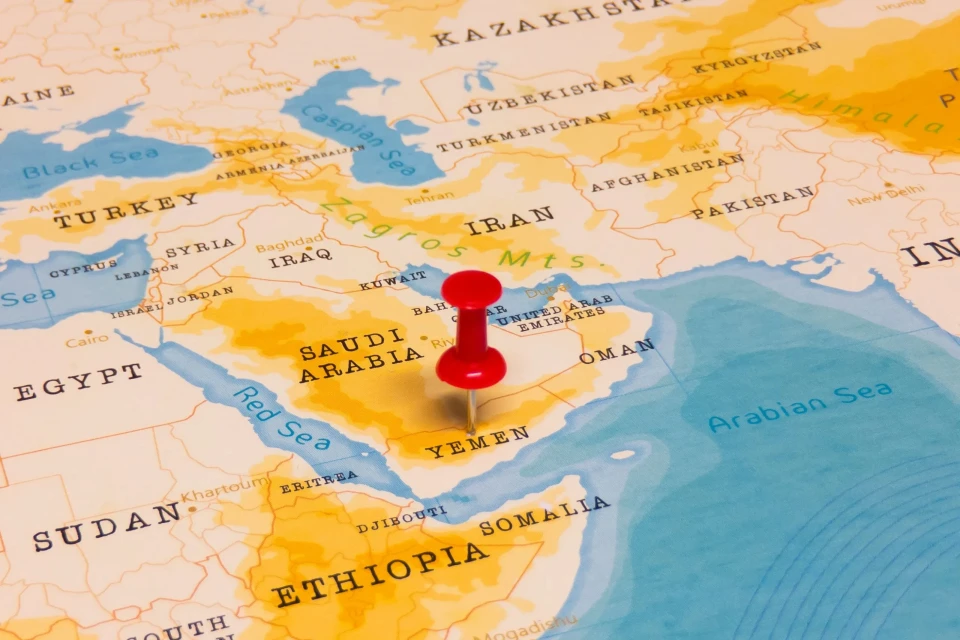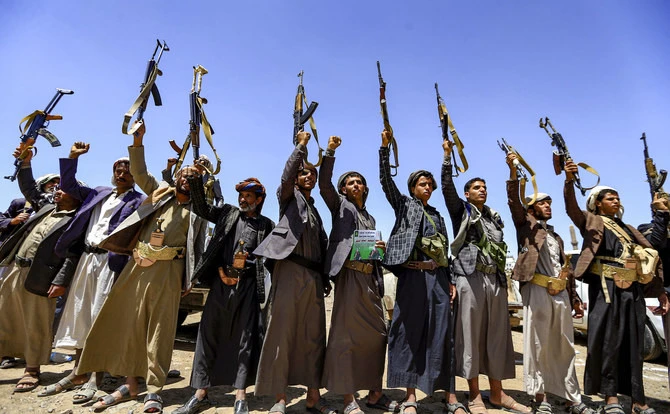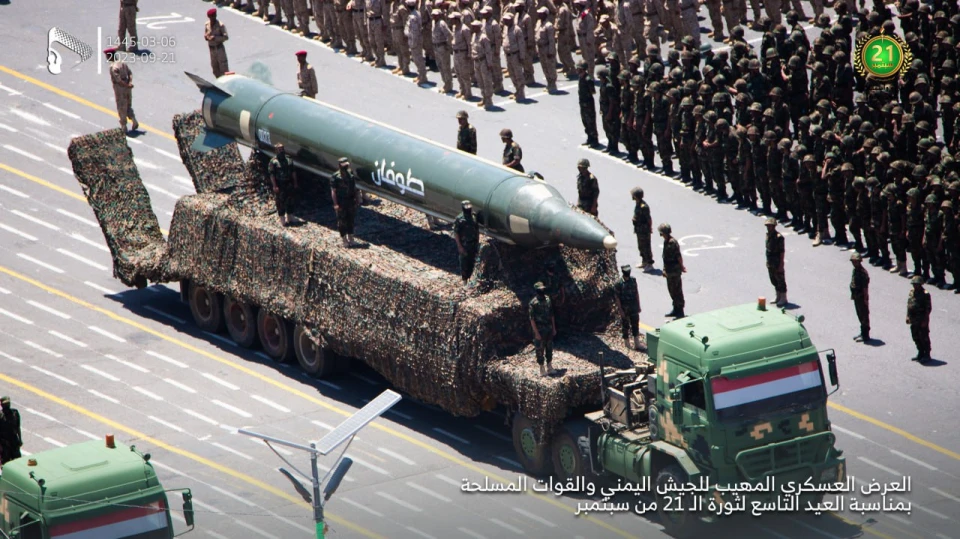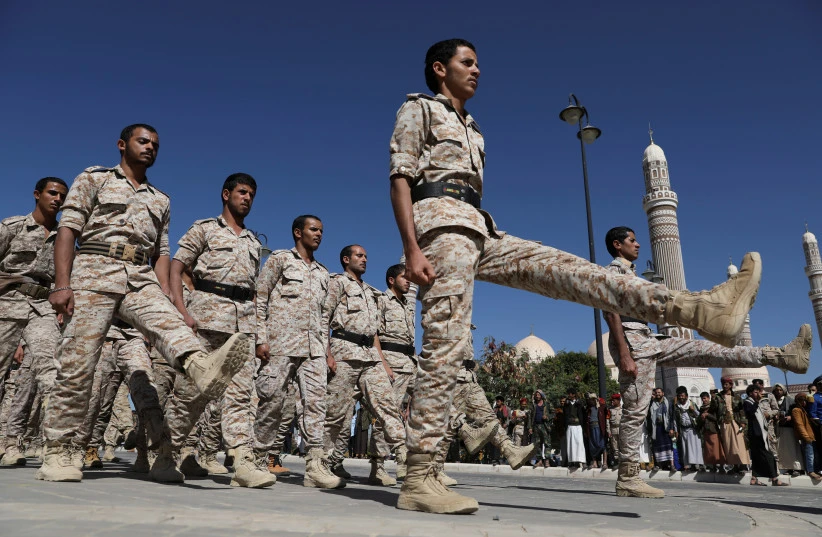
Who are Yemen's Houthis and where did they get ballistic missiles to strike Israel?
On October 31, the world media was stirred by the news that "Yemeni Houthis declared war on Israel" and launched missiles at them. What does this development mean for the Middle East?
Ukraine and Yemen are separated by almost 4,000 kilometers. Despite the fact that Yemen is a large country (bigger than Spain but smaller than Ukraine), for Ukrainians, it is a mystery country that most of us have only heard about in geography classes or in the news because of the protracted civil war in this country on the edge of the Arabian Peninsula.
Espreso will share who Yemen's Houthis are, why the civil war in Yemen is still going on, and how it may affect the situation around the Gaza Strip.
What's in the article:
- The permanent civil war in Yemen;
- Who are the Houthis and why they are called the "puppies of Iran";
- What long-range weapons do they have?
- Whether the Yemen's Houthis are capable of exacerbating the situation in the Gaza Strip.
Permanent civil war in Yemen
Yemen has a long and complex history, full of contradictions. For many years, this state has been among the ten most unstable countries in the world.

Photo: mappr.co
In short, the main factors that led to this were three starting points: The first is the split between the Sunni and Shia branches of Islam, which was perhaps the first to manifest itself strongly in Yemen and had centuries of consequences for the division of society into many different tribes and factions; the second is the capture of Yemen by the Ottoman and British empires, which subsequently led to the formation of North and South Yemen; and the third is resources, namely valuable oil deposits and a strategic location to control the entry/exit of ships from the Red Sea to the Gulf of Aden. These factors, to a greater or lesser extent, triggered the mechanisms that in the twentieth century led to an acute political crisis and protracted civil wars that continued in the twenty-first century after the Arab Spring.
In the language of facts:
In 1962, the Yemen People's Democratic Republic (North) was established, and in 1967, the People's Republic of South Yemen was formed;
In the 70s and 80s of the last century, there was a civil war between the two, which ended with the collapse of the USSR, which also had its influence in the region. In 1990, the two countries formally united, but anti-government uprisings continued;
In 2004, 2011-2012, there were major clashes between Yemeni Shias and the central government (Sunnis). Shias believe that they do not have enough power compared to Sunnis;
In 2014, the Houthi coup began, which led to a protracted civil war between the Houthis and the government, which is still ongoing.
Who are the Houthis and why are they called "the puppies of Iran"?

Photo: Arab News
The Houthis (also called Ansar Allah) are a paramilitary structure of the Zaydi Shiites (one of the branches of the Shiites) that has been operating in Yemen for about 30 years. The group is named after its founder and former leader, Hussein al-Houthi, who was killed by the Yemeni army in September 2004.
The Houthis operate on the territory of northern Yemen, on the border with Saudi Arabia, with whom they are also at war, as they had earlier seized part of Yemeni territory, are allies of the United States and support the official government of Yemen.
What do the Houthis want? They want to restore the theocratic state (as it is in Iran), which was in place in Yemen before 1962. To do this, they are using all possible methods, including terrorist ones. With the support of Saudi Arabia's troops, Yemen has repeatedly suppressed Houthi protests, but the coalition forces (also joined by eight other Arab countries) were unable to cope with the events of 2015. However, as of 2019, more than 20,000 air strikes have been carried out against the Houthis. As a result, about a hundred thousand civilians were killed. In addition, the naval blockade continued. That is why the UN called the situation in Yemen the worst humanitarian disaster on Earth, as millions of people suffered from hunger and were forced to leave their homes. The UN also condemned the intervention of the Saudis, who, in addition to officially assisting the Yemeni Sunni government forces (Saudi Arabia also has a majority Sunni population), are pragmatically interested in protecting oil interests in the region, which the Houthis are actively obstructing.
Therefore, the Houthis managed to capture the country's capital (and still hold it) and several key ports (later, government forces, together with coalition forces, managed to recapture them). The situation in Yemen is also aggravated by other radical terrorist groups operating in the country. We are talking about al-Qaeda and ISIS, which have formed entire regions from their supporters in Yemen.
In addition to popular support from the Shiites (who make up 30-40% of the country's population), the Houthis have military and financial support from Iran (also Shiites who protect their "Orthodox" brothers, as Russia likes to do with respect to "its" population). Therefore, in this situation, they resemble the Hezbollah group, which operates in Lebanon and has also formed a "state within a state". It is not surprising that the Houthis have the same enemies - Israel and the United States - and the same allies - Hamas, Hezbollah, Iran, and Russia.
Why does Iran benefit from supporting the Houthis?
Because they are trying to form a broad coalition around them in the Middle East to confront the "imperialists", “Zionists" and all the "demons of the West", as they like to say in Iran. But in reality, their interest in Yemen is simple - control over oil resources and the country's strategic position with respect to ships moving through the Suez Canal. This would increase their geopolitical influence.
What long-range weapons do they have?

Photo: screenshot from the video
On 31 October, Yemen's Houthis announced that they had launched a "large number" of ballistic missiles and drones towards Israel in order to protect Palestinians from the Israeli invasion of the Gaza Strip. But the question arises: where did a poor country with a protracted civil war get missiles flying 1,500-2,000 kilometers across the border separating the two countries? The answer is simple - of course, these are "gifts" from Iran, which they have renamed in their own way (as the Russians did with the Shahed, writing "Geranium-2" on them).
So what is in Houthi's arsenal that could reach Israel? The Defence Express military portal analyzed a video of the Yemeni Houthis' military parade that took place in September in the country's capital.
The video shows hundreds of units of various modern weapons, namely a large number of long-range missiles, and drones, as well as thousands of soldiers (the total number of Houthis is estimated at 100,000).
However, among the presented weapons, only one ballistic missile is capable of reaching Israel - Ghadr-F (or Toufan), which was launched by the Houthis towards Israel on 31 October. This is a ballistic missile with a range of 2,000 km and a warhead weight of 750-800 kg.
Then there is a smaller ballistic missile, a version of the Iranian Rezvan, which has a range of 1400 km. The Khaybar Shekan missile can also fly the same distance. In addition, the video shows Zolfaqar missiles flying at 700 km.
In addition to ballistic missiles, Houthis also have Quds cruise missiles, which are most likely versions of Iranian Soumar. For example, the Quds-3 and Quds-4 versions can fly 2,000 km, allowing them to be launched against Israel. Another model, which is notorious in Ukraine, but also used by the Houthis, is the Shahed-136. Iran claims that they have a range of 2,500 km, but experts doubt this. Still, theoretically, they can also use them to hit Israelis.
It turns out that Yemen's Houthis can indeed wage a remote war with Israel, even without sending soldiers to them. But it should be borne in mind that their missiles will be flying over Saudi Arabia, which is at war with the Yemeni Houthis, so it can also shoot them down if it believes that they pose a threat to its security.
Are the Yemeni Houthis capable of escalating the situation in the Gaza Strip?

Photo: jpost.com
The 31 October strike was not the first from Yemen towards Israel. Back on 19 October, the US military announced that one of its destroyers in the Red Sea had intercepted cruise missiles and drones launched by Houthi militants towards Israel. Also, the day before, US forces in Iraq were attacked by two UAVs, possibly also from Yemen.
It should be understood that Israel has been forced to defend its state and fight a number of Arab countries since its creation. Therefore, they have built a powerful "iron dome" to intercept frequent air threats. On 31 October, the Israelis used their Arrow air defense system for the first time to successfully intercept Houthi rockets fired from the Red Sea.
Accordingly, Houthi ballistic missiles can pose a threat to Israel and are likely to continue to cause problems for Israel in the future. However, these missiles must first travel almost 1,500-2,000 km, where they can be shot down either by US forces in the region, the Saudis, or, ultimately, by the Israelis themselves, who have enough time and technology to detect and destroy enemy targets.
It would be another matter if the Yemeni Houthis tried to conduct a ground operation against Israel. But to do so, they would need to somehow get fighters into Israel. It would not be possible to do this unnoticed, so only terrorist strikes by Houthi special services are possible. In addition, as the situation with Hezbollah, which geographically borders on the north of Israel, shows, they are in no hurry to conduct ground operations, limiting themselves to air strikes.
Israel has not yet clarified whether it is ready to launch any retaliatory strikes against Yemen. IDF (Israeli army) spokesman Rear Admiral Daniel Hagari said that the Israeli military is focused on the Gaza Strip and will not be distracted by Yemen, as it is "not worthy of attention".
"There are many actors in the region who act as proxies for Iran, such as the Houthis, who are trying to challenge us and distract us from the war in Gaza. We remain focused. We are focused on the war in Gaza. We will know when to defend ourselves, if necessary," the IDF spokesman stressed.
Therefore, Israel understands that the Houthis, like Hezbollah, can only distract the IDF from its main operation, which has been going on for several weeks in the Gaza Strip. In addition, the active actions of Yemen's Houthis could provoke Saudi Arabia into a new intervention in Yemen. All Saudi forces have already been put on high alert. But is this beneficial for Houthis? On the one hand, yes, because they want to completely seize power in Yemen, and it is the Saudi-led coalition that prevents them from doing so, but on the other hand, if they lose, they will lose the great power they have gained over the years and to which their military elites have become accustomed.
- News













































